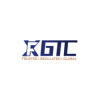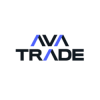Top Best Forex Brokers
Home » Forex Brokers

- 4.5
Trade forex online with FxPro, the trusted forex broker offering CFDs on currency pairs and six other asset classes. Enjoy tight spreads, powerful trading tools, and award-winning platforms. Start trading today!

- 3.5
NCM Investment (Formerly Noor Capital Markets or Noorcm) is a regulated broker company providing traders transparent & secure trading with Forex, Gold, Oil, Indices & Stocks in Kuwait. Enjoy competitive spreads & advanced platforms.

- 4.6
ICM.com offers CFDs on currency pairs and six other asset classes. Start trading forex online with the world’s best forex broker.

- 4.3
MEX Atlantic offers a range of award-winning MT4 & MT5 and mobile app trading platforms. Open a LIVE account to trade Forex, Shares, Stocks, Gold, Oil, CFDs.

- 4.9
Trade with GTCFX, a trusted forex broker and liquidity provider, to enjoy low spreads, fast deposits and withdrawals, and a secure trading experience. Start trading today.

- 4.8
Awarded as the #BestGlobalBroker, Fxview offers trading in Forex and CFDs such as stocks, commodities, indices and Cryptocurrencies. Start trading at zero commission with award winning multi regulated broker.

- 4.2
The Best Online Forex Trading Experience! Trade Forex, Stocks, Commodities, Cryptos & Stock Market Indices with AvaTrade’s Award Winning Platforms

- 3.0
Trade smarter with CPT Markets! A regulated Forex broker with a powerful trading platform, low spreads & lightning-fast execution. Start forex trading today!

- 4.5
Trade forex online with FxPro, the trusted forex broker offering CFDs on currency pairs and six other asset classes. Enjoy tight spreads, powerful trading tools, and award-winning platforms. Start trading today!

- 3.5
NCM Investment (Formerly Noor Capital Markets or Noorcm) is a regulated broker company providing traders transparent & secure trading with Forex, Gold, Oil, Indices & Stocks in Kuwait. Enjoy competitive spreads & advanced platforms.

- 4.6
ICM.com offers CFDs on currency pairs and six other asset classes. Start trading forex online with the world’s best forex broker.

- 4.3
MEX Atlantic offers a range of award-winning MT4 & MT5 and mobile app trading platforms. Open a LIVE account to trade Forex, Shares, Stocks, Gold, Oil, CFDs.

- 4.9
Trade with GTCFX, a trusted forex broker and liquidity provider, to enjoy low spreads, fast deposits and withdrawals, and a secure trading experience. Start trading today.

- 4.8
Awarded as the #BestGlobalBroker, Fxview offers trading in Forex and CFDs such as stocks, commodities, indices and Cryptocurrencies. Start trading at zero commission with award winning multi regulated broker.

- 4.2
The Best Online Forex Trading Experience! Trade Forex, Stocks, Commodities, Cryptos & Stock Market Indices with AVA Trade’s Award Winning Platforms

- 3.0
Trade smarter with CPT Markets! A regulated Forex broker with a powerful trading platform, low spreads & lightning-fast execution. Start forex trading today!
